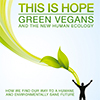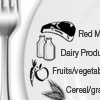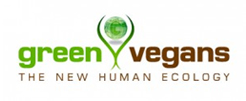
| LEARN: Animals Food Humane Farming? Environment Conscience SHARE: Family & Friends Screenings Classrooms SUPPORT: Overview Films & Programs New Languages Teachers Culture-Builders |
Quite often, those promoting “humane” animal products suggest that these products are more sustainable than animal products from large industrialized operations. At first glance, this may seem to be true. When one pictures a traditional small-scale farm with large open pastures, and then, in contrast, a huge industrial facility surrounded by giant lagoons of waste products slowly leaching into the countryside, it seems like common sense that producing animal products on a small scale is better for the environment. However, the reality is far more complicated than these simple images suggest. The more fundamental question is whether any form of animal agriculture, if practiced on the scale needed to meet existing demand for animal products, is good for the environment, or sustainable.
UN Reports UN panel urges global move to meat- and dairy-free diet As the world‘s population surges towards a predicted 9.1 billion people by 2050, Western tastes for diets rich in meat and dairy products are unsustainable, says a United Nations panel on sustainable resource management...more
UN panel urges global move to meat- and dairy-free diet As the world‘s population surges towards a predicted 9.1 billion people by 2050, Western tastes for diets rich in meat and dairy products are unsustainable, says a United Nations panel on sustainable resource management...more
 Vegetarian is the New Prius A UN report reveals that raising animals for food is a primary cause of land degradation, air pollution, water shortage, water pollution, loss of biodiversity, and not least of all, global warming. ...more
Vegetarian is the New Prius A UN report reveals that raising animals for food is a primary cause of land degradation, air pollution, water shortage, water pollution, loss of biodiversity, and not least of all, global warming. ...more  Suffering Ecosystems The life pulsing within ecosystems enjoys dependable shelter, species culture, social communities, abundant food, clean water, a lack of stress, and comfort. The decline of ecosystems brings immense, unfathomable suffering for sentient beings able to suffer pain, fear, discomfort, thirst, starvation, and distress, all very real issues caused by habitat loss....more Suffering Ecosystems The life pulsing within ecosystems enjoys dependable shelter, species culture, social communities, abundant food, clean water, a lack of stress, and comfort. The decline of ecosystems brings immense, unfathomable suffering for sentient beings able to suffer pain, fear, discomfort, thirst, starvation, and distress, all very real issues caused by habitat loss....more  FarmKind The non-profit organization of former animal farmer Harold Brown, whose remarkable story of awakening conscience is told in Peaceable Kingdom: The Journey Home. He is now a public speaker on the global impact of animal agriculture, as well as its non-violent alternatives. He has helped other animal farmers transition toward sustainable, plant-based farming....more FarmKind The non-profit organization of former animal farmer Harold Brown, whose remarkable story of awakening conscience is told in Peaceable Kingdom: The Journey Home. He is now a public speaker on the global impact of animal agriculture, as well as its non-violent alternatives. He has helped other animal farmers transition toward sustainable, plant-based farming....more  Making the Connection - Farming Making the Connection - Farming  "Green" Eggs and Ham? Proponents of locavorism have some admirable goals, such as living with increased environmental responsibility and decreasing corporate domination of our food supply. Yet, locavorism as it is currently being promoted suffers from several fatal flaws that need to be addressed. ...more "Green" Eggs and Ham? Proponents of locavorism have some admirable goals, such as living with increased environmental responsibility and decreasing corporate domination of our food supply. Yet, locavorism as it is currently being promoted suffers from several fatal flaws that need to be addressed. ...more |


This inspiring 12-minute video proposes: “There is a way to build a better world, driven by the innate goodness of people and their values for justice, kindness and compassion: for other people, for the planet, for the animals."